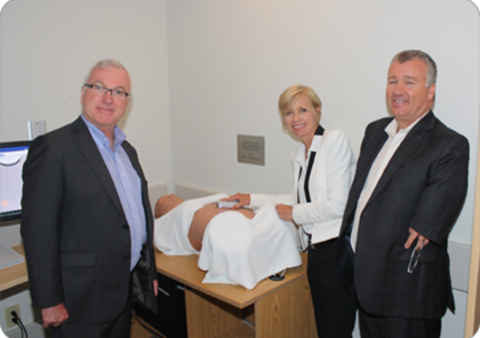
London, Ont. - There was a time when the old adage "see one, do one, teach one" was the theory behind education and training in diagnostic procedures and surgery - meaning health care professionals learned by observing and practicing in real patient care situations. That's certainly how Dr. Gordon Wells Prueter (1920-2011) would have honed his talents.
Dr. Prueter practiced obstetrics and gynaecology in London for more than three decades and served as an Assistant Clinical Professor in Obstetrics & Gynaecology at Western University until his retirement in 1985. A skilled physician with a comforting bedside manner, he was truly dedicated to his patients.
"He was the most capable and talented obstetrician I have ever known," says noted London obstetrician and gynaecologist Dr. Hugh Allen.
Dr. Prueter was also a devoted teacher.
"Investing in learners for the advancement of women's health and maternal newborn care was Dr. Prueter's passion," says London Health Sciences Centre's Dr. Renato Natale. He believed in life-long learning."
Recently, Dr. Prueter's family decided to honour his legacy by supporting training in LHSC's Women's Care Program; donating $100,000 for a VIMEDIX Ob/Gyn Ultrasound Simulator.
While working with patients is still an important part of medical training, the Women's Care program introduced a simulation training program in 2011 to helping their teams effectively diagnose and treat commonly seen issues, as well as rare and complex conditions.
"Our parents taught us the importance of giving back to the communities in which we live," says John Prueter. "We know the simulator will ultimately enhance patient care and we hope our gift will inspire others. Mike, Martha and I, along with our mother, are very pleased to be able make this gift to the hospital. This opportunity to support the purchase of the simulator is a perfect fit for our family and the legacy for dad as it combines education with Women's health, two of dad's passions."
The VIMEDIX features real-time obstetrics-fetal morphology (form and structure) simulation and augmented reality to help teach how to interpret scanned ultrasound images. As the mannequin is scanned, the simulator displays a split-screen view of a 2D ultrasound image along with a 3D graphic representation of the fetus and maternal anatomies. It features a realistic fetus with life-like maternal anatomy, with a variety of fetal positions including both normal and complex scenarios. In addition to training, the new simulator will provide opportunities - through research, presentations and publications - for LHSC to share its findings about obstetrical ultrasound simulation training effectiveness.
The Prueter family's generosity - and their gift enabling advanced patient care through training and research - is a fitting legacy for such a dedicated father and physician.
For more information on donor-supported Women's Care initiatives click here.
